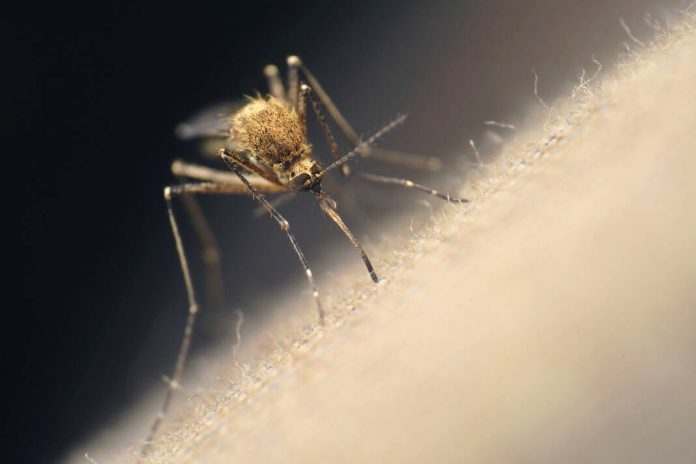State health officials are urging Hoosiers to take steps to protect themselves from mosquito bites after West Nile virus, WNV, was detected in mosquitoes for the first time this year.
A mosquito sample collected in Clinton County has tested positive for WNV. No human cases of WNV disease have been detected this year. However, the Indiana Department of Health, IDOH, expects WNV activity to continue across the state during mosquito season, which continues through the first hard freeze.
IDOH officials say residents should take the following steps to eliminate potential breeding grounds:
- Discard unused items that can hold water;
- Each week, empty and scrub items that hold water such as birdbaths, toys, pools and flowerpot saucers;
- Repair failed septic systems;
- Drill holes in the bottom of recycling containers left outdoors;
- Keep grass cut short and shrubbery trimmed;
- Clean clogged roof gutters;
- Frequently replace the water in pet bowls;
- Aerate ornamental pools, or stock them with predatory fish.
Officials recommend the following personal protective measures:
- Avoid being outdoors when mosquitoes are active — from dusk to dawn and in the early morning;
- Apply an EPA-registered insect repellent containing DEET, picaridin, IR3535, oil of lemon eucalyptus, or para-menthane-diol to clothes and exposed skin;
- Cover exposed skin by wearing long sleeves and long pants in places where mosquitoes are especially active, such as wooded and shady areas;
- Install or repair screens on windows and doors to keep mosquitoes out of the home.
People older than 60 years and those receiving immunosuppressive medications or treatments are at greatest risk of severe WNV disease, state officials say.
For more information on WNV and to track cases in Indiana visit IDOH’s website, in.gov/health/.





